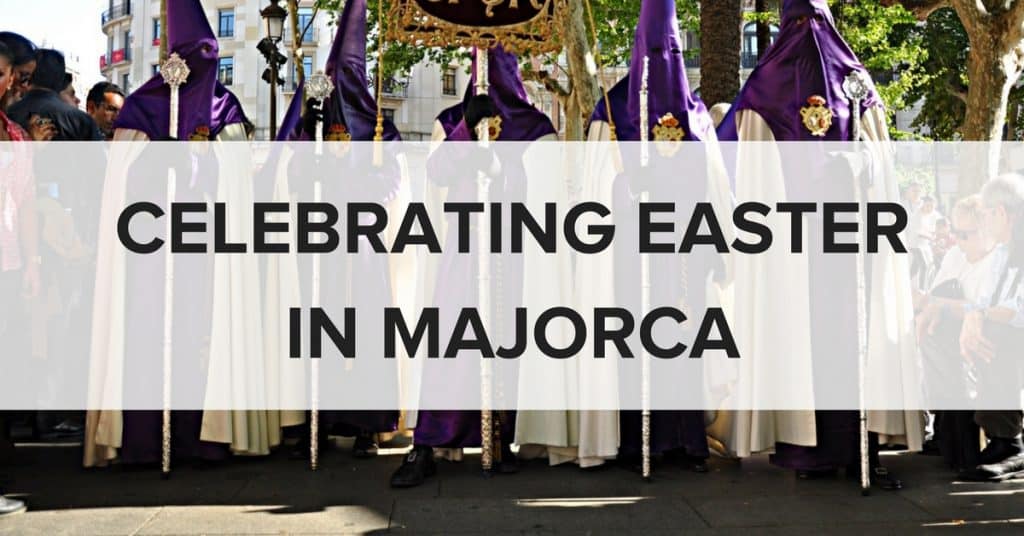Easter in Mallorca


Easter in Mallorca: A Blend of Solemn Traditions, Gastronomic Delights, and Tourism Flourish
As the gentle Mediterranean breeze carries the warmth of spring, the island of Mallorca prepares for one of its most significant and reflective times of the year: Easter. Known locally as Semana Santa, Easter in Mallorca is a period steeped in age-old traditions, culinary feasts, and a bustling tourism scene that brings a unique vibrancy to this Balearic jewel.
Semana Santa in Mallorca blends religious observances with cultural festivities, offering visitors a rich tapestry of experiences. The island’s towns and villages come alive with processions featuring ornate floats depicting religious scenes, accompanied by solemn marches and music. These processions are not just religious events but also cultural spectacles that highlight Mallorca’s deep-rooted traditions and craftsmanship.
Culinary delights play a central role during Easter in Mallorca, with local specialties taking center stage. Visitors can indulge in traditional dishes such as panades (meat-filled pastries), robiols (sweet pastries), and empanadas (savoury pies), which are enjoyed during family gatherings and communal meals. The island’s vibrant markets and bakeries overflow with seasonal treats that tempt the palate and offer a taste of Mallorcan gastronomy.
The tourism scene during Easter adds another layer of excitement to Mallorca’s ambiance. Visitors from around the world flock to the island to witness its unique blend of religious fervor, cultural traditions, and scenic beauty. Hotels and accommodations offer special packages and activities, catering to those seeking both relaxation and immersive cultural experiences.
Overall, Easter in Mallorca is a time of reflection, celebration, and cultural exchange. Whether you’re drawn to the religious processions, eager to sample local delicacies, or simply captivated by the island’s natural beauty, Semana Santa offers a captivating glimpse into Mallorca’s soul. It’s a time when traditions come alive, bringing together locals and visitors alike to create memories that linger long after the Easter season has passed.
Easter: Traditions of Faith and Community
The Holy Week in Mallorca is marked by a series of solemn processions and religious observances that reflect the island’s deep-rooted Catholic heritage. The festivities commence on Palm Sunday, with church services across the island and the distribution of palm leaves, symbolizing Jesus’ entry into Jerusalem. As the week progresses, the streets of Palma and other towns are adorned with the somber yet captivating processions of brotherhoods, known as ‘Cofradías,’ which parade through the streets with ornate floats depicting scenes from the Passion of Christ.
These processions are characterized by their profound sense of reverence and community spirit. On Maundy Thursday, the ‘Procession of Blood’ transforms the capital, Palma, into a hub of religious fervor, with masked figures in traditional robes leading the way, followed by penitents carrying altars and crosses through the winding old town streets.
Gastronomic Celebrations
The culinary landscape of Mallorca during Easter is as rich and varied as its cultural tapestry. The prohibition of meat during Lent gives way to a plethora of seafood and vegetable dishes that grace the tables of locals and visitors alike. Cod and sea bass become the stars of the season, often featured in savory pastries known as ‘panades,’ which are particularly popular during this time.
Sweet treats also abound, with ‘robiols’ and ‘crespells’ being the traditional pastries of choice. These sweets, alongside the emblematic ‘Mona de Pascua,’ a cake typically enjoyed on Easter Sunday, encapsulate the festive spirit and the island’s penchant for confectionery excellence.
Tourism and Hotel Occupancy
Easter also heralds the beginning of the tourist season in Mallorca, with many hotels reopening their doors after the winter lull. This year, despite a notable decrease in international flights, the island expects a high level of hotel occupancy, with current rates hovering around 62-64%. Palma leads with an impressive 84% occupancy rate, indicative of the city’s enduring appeal as a holiday destination.
The forecast suggests that last-minute bookings, influenced by weather conditions and the allure of the island’s Easter celebrations, could see these numbers rise even further. With a record number of hotels operational during this period, Mallorca is set to welcome a diverse array of visitors, from those seeking spiritual solace to others looking for a springtime getaway.
To Sum Up
In conclusion, Easter in Mallorca is a time of reflection, celebration, and economic vitality. The island’s traditions offer a glimpse into its soulful heritage, the food reflects its gastronomic richness, and the influx of tourists underscores Mallorca’s status as a premier European destination. Whether participating in the sacred processions, savoring the seasonal cuisine, or simply soaking in the festive atmosphere, Easter in Mallorca is an experience that resonates with the essence of this Mediterranean paradise.




